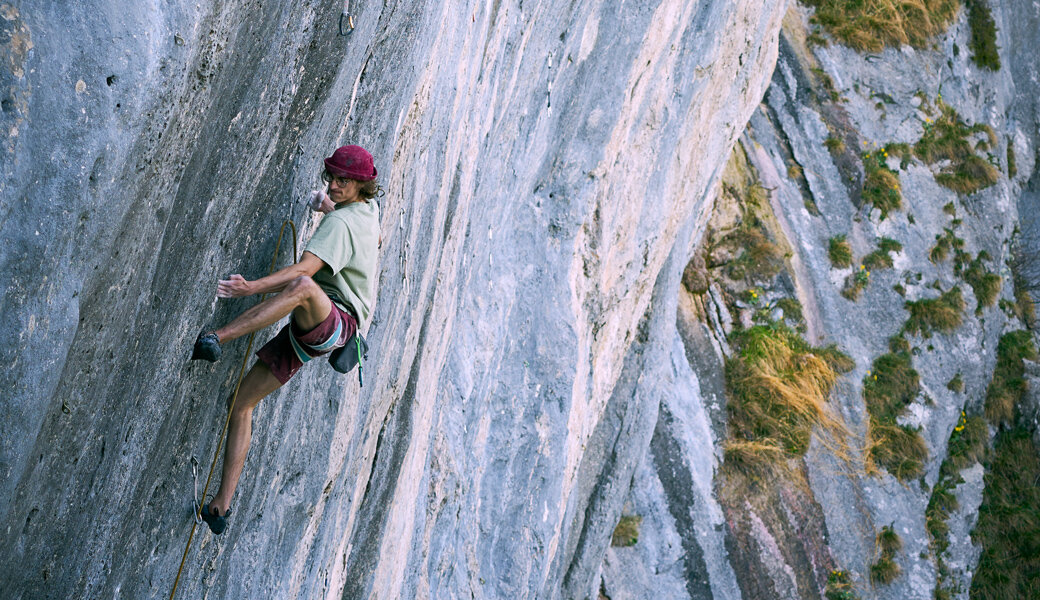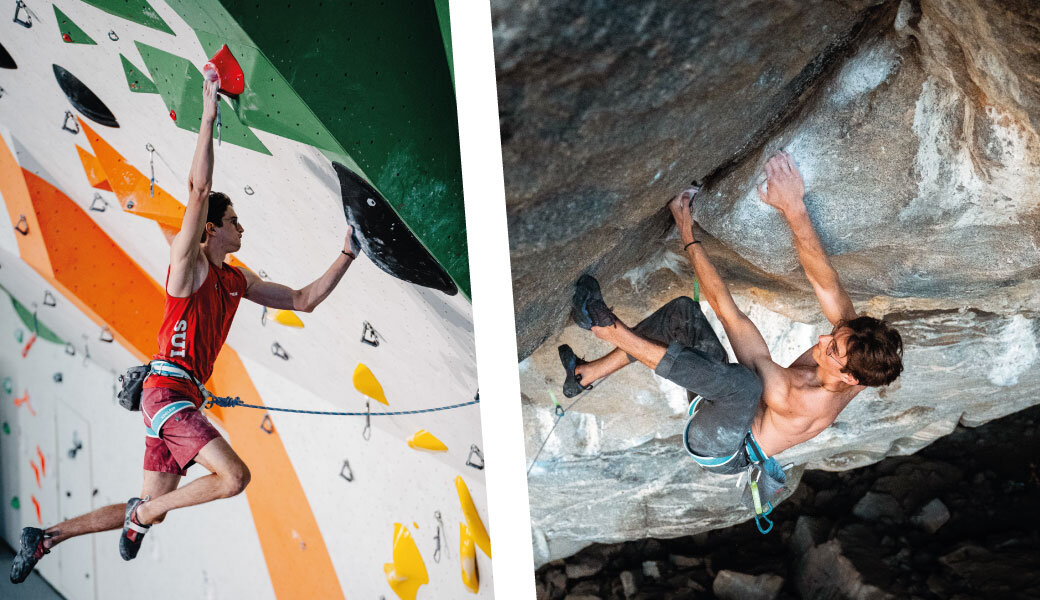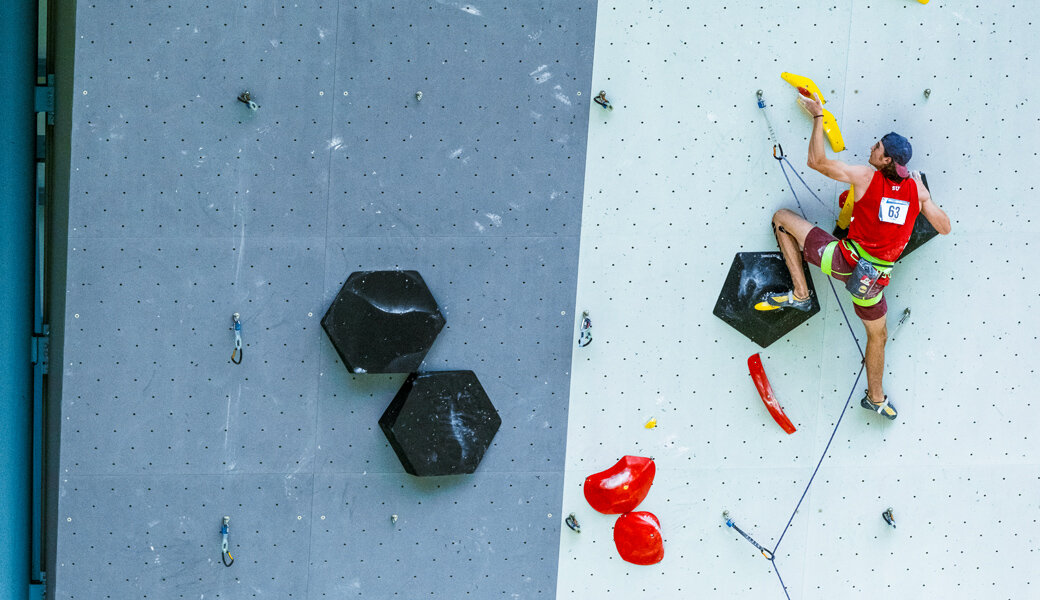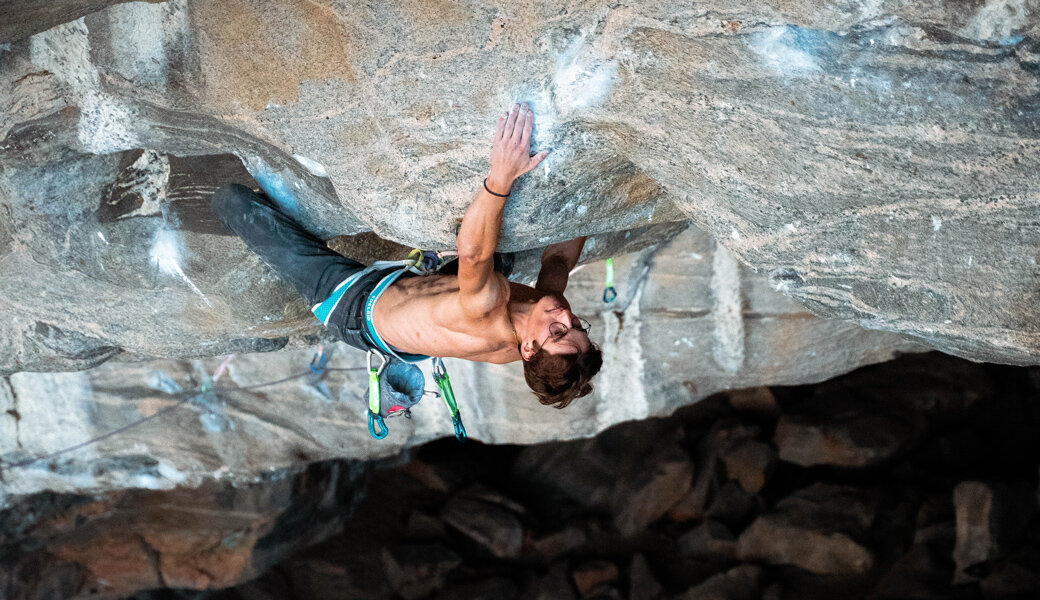When and how did you get into climbing? What keeps you interested? What fascinates you?
I started climbing sporadically with my family during the vacations. Then, at the age of 14, I caught fire at a climbing camp. I started climbing more and soon climbed my first 8a. My training became more and more systematic. Today, I focus my whole life on climbing.
Who were your childhood heroes?
Jakob Schubert is one of my greatest idols. He is a very complete climber and his fights in difficult routes inspire me a lot. Next to him, my good friend, David Firnenburg, is a very big inspiration as well. Every time, I go climbing with him, I learn something and get better. He is mentally strong and very good at dealing with failures. Besides all that, he is a very nice person and always stayed humble.
Yes, I think that I am a role model. I try to pass on my values by behaving like one. It is very important to me to be respectful with nature and residents at climbing areas. There I try to sensitize others, if possible.
What have been the most important milestones in your life so far, both in climbing and in everyday life? And did you recognize them immediately as such or only later on?
My biggest milestone was climbing my first 8b. Not because the grade was very hard, but because the process meant a lot to me. I tried the route with a good friend. He used to pick me up from school once a week and we would drive to the project, where we climbed until late at night. The moment I sent the route, I did not realize, what this route meant to me. I only understood this later. I know that I was very happy.
What were your greatest failures / setbacks / injuries? How did you cope with them and how did you come back from them?
In 2020, I broke my ankle while bouldering. I could’t climb for three months. This was a big challenge. I started training again after just one week. As soon as I could put on a climbing shoe again, I climbed my first 8c. This injury showed me that if I stay positive and keep fighting, every challenge makes me stronger.
What is your favourite climbing-related story / experience?
A story I will never forget was definitely my first day on the Titlis North Face. The Titlis North Face is an approximately 400 meter high and heavily overhanging wall near Engelberg. In it there are many very difficult multi-pitches, which are incredibly imposing. The first time I tried it with a good friend. We were still young, so that we could not yet drive a car. We took the train in Zurich at 5 in the morning to have enough time. When we arrived in Engelberg, it started to rain. However, we thought to ourselves, "Never mind the wall is overhanging." And we started the two-hour hike. After about an hour, the trail gets lost and you have to find your own way to the wall over pathless terrain. Since it was raining and most of it was steep, rocky grassy slopes, it was very slippery. After wandering around for two hours, we found the start of the rout. The wall was dry and we could finally start climbing. The climbing was already very difficult and exposed in the easy pitches. Since we were not yet very experienced, we just started climbing. Only in the fourth pitch we realized that we had not landed in the 7c route as originally planned, but in the 8b, which was a line to the left. It rained all day, but the wall stayed perfectly dry. During the rappel down, it was already getting dark. Arriving at the base of the wall, we started our descent towards the valley station. From there, we wanted to take the bus to Engelberg. But since it was already 11 p.m. in the evening, there was no bus anymore. Therefore, we had to walk one hour to Engelberg. Fortunately, there was still a night bus in Engelberg. The only thing we had left to eat was one kilo of cake. It tasted better than any gourmet meal. At 4 o'clock in the morning we were back home. Often it is not the big sends that are remembered the most, but the experiences with good friends.






